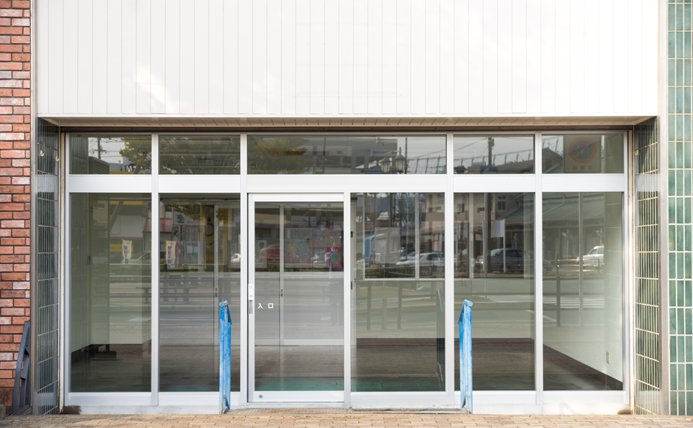What hidden pitfalls do high yields have?
According to the German Institute for Economic Research (Deutsche Institut für Wirtschaftsforschung), every fourth property does not yield a thing, and every twelfth investment makes a loss. One of the most common reasons for unsuccessful investment is the chase for high yields. Property investment yields and risks are usually directly interdependent: the higher the expected profit, the greater the risk of losing it.

According to George Kachmazov, Tranio international real estate broker’s managing partner, it is easy to explain: most investors are interested in buying high-quality real estate in promising locations, due to the high demand it grows in price, and its yields fall. "Therefore, low yields are indicative of the high quality of the property and high demand for it. Conversely, high property yields imply risks of low liquidity, meaning there will be few potential buyers", Mr Kachmazov concludes.
What other hidden risks do high yields imply?
Low occupancy
High-yielding properties are often located on the city outskirts or small localities with 15,000–20,000 residents. In the UK, such offers can be found in the villages of northern England, far from London and other major cities, in Germany — in the economically weak Ruhr or the eastern regions of the country, where the unemployment rate exceeds the national average.
In such locations, the rental demand is low, for which reason facilities are often partially or completely vacant. Even if the property is already leased and yields a high return at the time of sale, chances are high that the new tenants for the same money will be difficult to find after losing the current ones. "Therefore, we recommend choosing cities with major employers and growing populations”, Ekaterina Raznikova, Tranio project manager for Germany, comments. "In Germany, these can be small cities, such as Augsburg or Ingolstadt, for example”.

Temporary guarantee
Sometimes, the managing companies that rent property promise investors steadily high returns regardless of the presence of tenants. Such projects should be treated with caution. Usually, the management company reduces the rental income by maintenance and management costs, compensating for the expenses incurred during idle periods with the rental revenue. As a result, the investor must obtain low but stable and guaranteed yields during the entire term of the agreement with the management company. And if it promises a high rate, the conditions are unlikely to apply for a long time.

A similar instance is described on retirement-planner.co.uk. An investor who did not wish to be named put £150,000 into the UK's storage pods with a guaranteed yield rate of 8% for two years. “They stopped paying the returns after less than a year and sent out communications saying that occupancy and rates were not being achieved which they were working to improve,” he said. “With regard to the guaranteed buy back, this was only guaranteed if the developer wanted to buy it back. When I enquired about the status of my investment and potential sale through a local commercial property agent, I was advised that the storage space I had bought for £150,000 was not even worth a tenth of that".
Rental agreement drawing to an end
High-yielding property often sells with rental agreement terms drawing to an end (2–3 years before termination) or already expired. For instance, in early 2017, near Liverpool, an office was offered at a 16% discount: the seller had long been unable to find a buyer and reduced the initial price from £155,000 to £130,000. Its annual rental income ran at £14,500. The high yield (over 11%) was associated with high risks: the ten-year rental agreement with a law firm was signed in 2007, meaning that the property was offered with an agreement which had almost expired.
High renovation and maintenance costs
Another common problem the buyers of "high-yielding" property may face is the poor condition of property that was overhauled several decades ago. Its high yield does not include renovation expenses that can "eat up" most of the revenue.

Maintenance costs as a common reason for the unprofitability of high-yielding property is mentioned by journalist Ross Clark in his article for the Spectator: "From taxi drivers to hairdressers, half the world seems to own residential buy-to-let property. But why does hardly anyone own an office building or a lock-up industrial unit? That was my first thought when I saw an office building for sale in a local village for £330,000, with tenants in situ paying a combined £30,000 a year in rent. Try finding a flat with a gross yield of over 9 per cent. The yield looked high because the building needed a fortune spending on it: the boiler room was full of asbestos".
"If the risks materialise, it will not be advantageous for a foreign investor to manage the property: local managers will have to be hired and paid for solving the problem, which will also distract the investor from the major home country business", Mr Kachmazov says. "Therefore, we recommend investing in international projects only if the existing risks are extremely unlikely to materialise. Such projects are always found in good, highly liquid locations, and although they do not yield more than 4–5% per annum, they allow investors to sleep easily and not worry about the safety of their capital".
We will send you a content digest not more than once a week